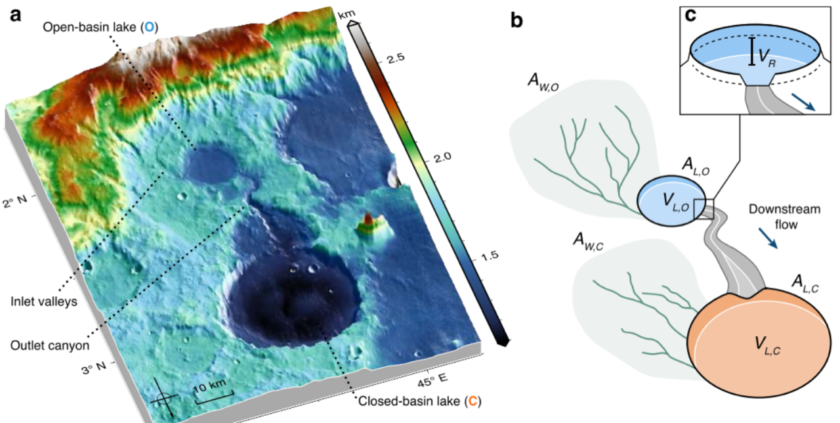CPSH Seminar Series: Gaia Stucky de Quay, Harvard University
February 22, 2022
February 28, 2022 at 1:00pm CT
Speaker: Gaia Stucky de Quay, Reginald A. Daly Postdoctoral Fellow, Harvard University
Host: Timothy Goudge
Title: Landscape evolution and the early Mars hydroclimate: constraints from paleolake and valley morphologies
Abstract: Fluvio-lacustrine features on the martian surface attest to a climate that was radically different in the past. Ubiquitous valley networks and paleolakes across Mars’ southern highlands suggest that long-lived precipitation may have persisted up to 3.7 billion years ago. However, because climate models have difficulty sustaining a liquid hydrosphere at the surface, it has been hypothesized that multiple cycles of runoff episodes may have characterized the ancient martian climate. Despite the decades-long accumulation of in situ and remote sensing data on surface water modification features, fundamental questions on the nature of Mars’ paleoclimate and its hydrological cycle remain: (1) How much rainfall and/or snowmelt occurred during a given interval of favorable climate?; and (2) How long did these runoff-producing episodes last? Here we combine measurements of 96 open- and closed-basin lakes with simple hydrological balances to constrain catchment-averaged precipitation over a given runoff episode. We include newly identified systems containing both open- and closed-basin lakes—i.e., coupled systems—which provide fully bounded precipitation estimates. We show that, on average, local precipitation was ≳4 m and ≲159 m, and the climate was semi-arid or more humid in certain regions. We integrate these results with existing climate model data to quantitatively derive runoff episode duration, which was likely between 100-10,000 yr and spatially variable. Finally, we will also investigate global erosional volumes for valleys associated to paleolakes to explore and define the limits of climate reconstruction of Mars. Importantly, these spatio-temporal hydroclimate constraints, along with exciting future work enabled through the CPSH Seed Grant, will allow us to test paleoclimate model scenarios, working towards bridging the gap between geological observations and climate theory for early Mars.


